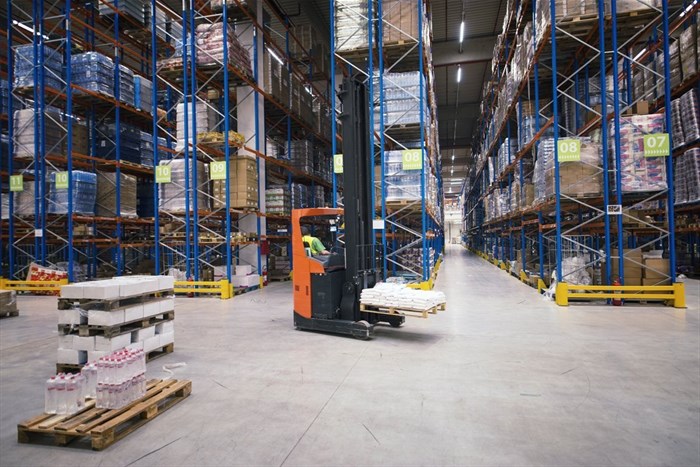There is a considerable mountain for South Africa to climb if we are to reach the country’s infrastructure goals by 2030. As was recently acknowledged at the 2024 Sustainable Infrastructure Development Symposium, the public sector will need to invest some R1.6t and the private sector some R3.2t to achieve these goals.

Source: aleksandarlittlewolf via
FreepikThe good news is that hard yards have been made in preparation for the challenge ahead, with several significant regulatory reforms already underway. These include critical amendments to the Division of Revenue Act and the PPP regulatory framework that will strengthen public-private partnerships (PPPs), streamline project processes, and encourage greater private investor involvement.
But perhaps one of the most important focal areas for the country will be plans for the large-scale modernisation, maintenance, refurbishment, and expansion of local logistics networks, including port and railway systems.
This includes a focus on operational performance improvement, upgrading rolling stocks, ensuring the safety of the rail network, and capital investment for expansion and sustaining operations. Some quick wins could also potentially be achieved in areas like operational improvement through effective management and reforms, and bringing long-standing locomotives back to service to immediately alleviate congestion problems.
Logistics is the linchpin for sustainable, inclusive growth
Ultimately, enhanced logistics infrastructure is the catalyst needed to ignite lasting economic transformation, making our economy substantially stronger, more sustainable, and more inclusive.
For example, by improving our logistics efficiency, South Africa can reduce our business costs, translating to increased competitiveness on both local and global scales. In turn, enhanced competitiveness could spur business expansion and stimulate employment. Streamlined logistics systems often drive growth in industries reliant on freight transportation, such as the manufacturing, agriculture, and retail sectors – all of which are highly labour-absorbent.
Likewise, this would improve export capacity, resulting in billions and even trillions of rands in additional income for the country in coming years, delivering outsized returns.
Success hinges on public-private partnerships (PPPs)
Notably, PPPs will be critical to achieving the country’s infrastructure objectives, as private sector investment and expertise will be needed to expedite improvements in our logistics systems and create an environment conducive to innovation.
Partnerships such as those between the Gap Infrastructure Corporation (GIC) and various public entities, for example, exemplify the benefits of PPPs in delivering critical infrastructure projects efficiently and cost-effectively. By leveraging private sector resources and capabilities, public entities can successfully navigate the complexities of large-scale infrastructure development without falling victim to common traps.
Hurdles that must be overcome
It's common knowledge that large-scale infrastructure projects internationally are often susceptible to delays and budget creep because of ever-present practical challenges.
Inflationary pressures, exacerbated by global market dynamics and currency volatility, are one such challenge, posing significant risk to budgets for construction materials and machinery. Statistics South Africa’s Construction Input Price Index (CIPI), for instance, reveals that overall construction costs increased by 7.8% year-on-year in January 2024.
Demonstrating how dramatic the effect of inflation can be on projects, a 2022 Brookings study on infrastructure in the United States of America (USA) showed that if inflation there was just 2.3% higher than predicted every year, it would lead to infrastructure industries losing an estimated $137bn in purchasing power.
Meanwhile, supply chain disruptions can also complicate matters by delaying essential materials and machinery. In recent times, shipping lanes have been heavily disrupted due to geopolitical tensions like the conflict in Gaza, which led to attacks on cargo ships in the Suez Canal. Additionally, extreme weather conditions such as droughts can cause low water levels in key shipping routes, further affecting travel time.
In South Africa, another obstacle is the urgent need to develop and retain expertise in the construction and logistics sectors. Investing in skills development programmes in these areas could go a long way to enhancing efficiencies in logistics infrastructure projects in the long run.
Given these challenges, private sector involvement is vital. Private infrastructure developers such as GIC can help reduce risks by offering expertise and experience in project management, finance, and innovation. They can also offer access to specialised skills in engineering, planning, and construction, and demonstrate how innovation can be used to digitise, simplify, and automate processes in the construction industry for improved efficiency and cost savings.
If utilised effectively, PPPs could maximise the impact of policy reforms, infrastructure plans, and the millions in funding being channelled towards logistics networks, fundamentally reshaping South Africa’s communities, economy, and future for the better.














































